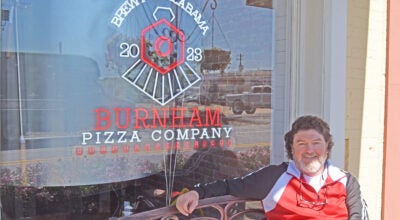Commission ‘just asked’ questions
Published 3:00 am Saturday, May 19, 2012
The controversy over the possible tax liability of the Poarch Band of Creek Indians has divided the county, but so far it remains just a fact-finding mission for members of the Escambia County Commission, according to commission Chairman David Stokes.
The commission recently submitted a letter to Ken Salazar, secretary of the interior for the U.S. Department of Interior asking for clarification of issues addressed with a 2009 Supreme Court decision concerning trust land for Indian tribes across the country.
Stokes said the letter was written and submitted to do one thing — clarify the question of legality of trust land ownership by the Poarch Band of Creek Indians. His comments come days after the only commissioner opposed to the commission’s stance criticized the motives of the attorney the county hired.
“We are only asking questions,” Stokes said. “We aren’t taking any action. We’re just trying to get the position on this matter clarified for the county so we will know where we stand.”
At issue is the possible tax liability of the Poarch Band of Creek Indians as it pertains to business, industry and residencies currently situated on land the tribe believes is held in trust.
“We are pursing where we fit in with the Carcieri case,” Stoke said. “Any response from the secretary of the interior would clarify our position to insure that we are not derelict in our duties in collecting taxes owed to this county.”
In a nutshell, the Carcieri decision states the secretary of interior has no legal right to take and hold land in trust for the benefit of Indian tribes who weren’t recognized in 1934.
The Poarch Band of Creek Indians became a federally recognized tribe in 1984 — 50 years after the 1934 Indian Restructuring Act was put into place.
That Carcieri decision represents a significant impact on Escambia County’s ability — and duty — to collect taxes in a fair manner to all who are subject to that taxation.
“If the Carcieri decision stands and the Poarch Creek Indians are liable for taxes in this county, it is our duty to collect those taxes,” Stokes said. “That is our job and that’s what we have to do.”
Stokes said the issue at hand is one that was made known in 2009 following a Supreme Court decision in the Carcieri case.
“When the commission first learned of this decision we really didn’t know what to do,” Stokes said. “We knew that officials with Poarch Creek Indians were aware of the decision but we heard nothing from them on this matter. There were months of opportunity for us to sit down and discuss this matter, but that didn’t happen. That’s when we hired an attorney to advise us on how to handle the matter.”
Stokes said Bryan Taylor was hired as the attorney for the commission in advisory position for the issue at hand.
“We hired Bryan because he is knowledgeable in Indian law,” Stokes said. “We didn’t have to wait for an attorney to learn that law; Bryan was already aware of how Indian law works.”
In a previous interview, Commissioner Brandon Smith has said that he believed Taylor’s position was one aimed at shutting down the casino owned and operated by the Poarch Band of Creek Indians near Atmore — just as he had while working with former Gov. Bob Riley.
In his defense, Taylor said he was hired by the commission as an advisor and researcher only.
“When I am hired I work for my client,” Taylor said. “When I worked for Gov. Riley he was my client. I no longer work for Riley, I work for the commission. I am doing only what my client is asking me to do. That is limited to research and advice at this point.”
Taylor also said the stance of the commission is only to find information and direction in what the Carcieri decision means in respect of their governmental duties.
Taylor said if the casino were to close in the future, it would not be because of the questions posed to the secretary of interior by commissioners. He said if closure does occur, it would be because of the 2009 decision of the Supreme Court, not because of the Escambia County Commission.





